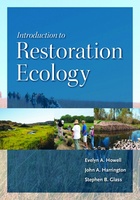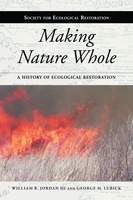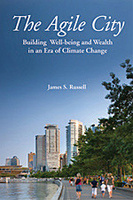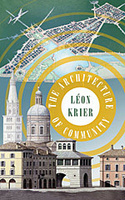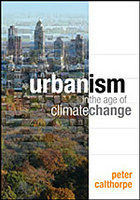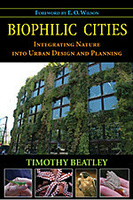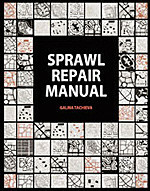
Island Press began with a simple idea: knowledge is power—the power to imagine a better future and find ways for getting us there. Founded in 1984, Island Press’ mission is to provide the best ideas and information to those seeking to understand and protect the environment and create solutions to its complex problems.
Introduction to Restoration Ecology
Success in ecological restoration requires not only technical proficiency but also skill in the social, cultural, and political arenas. Introduction to Restoration Ecology can help students develop the skills they need to succeed in all of these areas and is a much-needed new resource.
The Case for a Carbon Tax
Getting Past Our Hang-Ups to Effective Climate Policy
A clear-eyed, sophisticated analysis of climate-change policy, Hsu weighs the economic, social, administrative, and political merits of a carbon tax to argue it is the most effective policy.
Chasing Molecules
Poisonous Products, Human Health, and the Promise of Green Chemistry
Chasing Molecules explores the development of green chemistry as an alternative to the dangerous synthetic chemicals found in countless consumer products.
Making Healthy Places
Designing and Building for Health, Well-being, and Sustainability
Making Healthy Places presents a diagnosis of-and offers treatment for-problems related to the built environment.
Intelligent Tinkering
Bridging the Gap between Science and Practice
One approach he advocates is what he calls "intelligent tinkering," where practitioners employ the same kind of careful but informal trial-and-error strategy followed by such groups as indigenous peoples and hobbyist mechanics. Cabin illustrates the power of intelligent tinkering using examples from his own work and other restoration projects.
The gap between science and practice is a widespread problem across all fields of applied science. Intelligent Tinkering offers an insightful look at the underlying causes of the problem, along with invaluable suggestions for addressing it.
Making Nature Whole
A History of Ecological Restoration
Making Nature Whole is a landmark contribution, providing context and history regarding a distinctive form of land management and giving readers a fascinating overview of the development of the field. It is essential reading for anyone interested in understanding where ecological restoration came from or where it might be going.
Wicked Environmental Problems
Managing Uncertainty and Conflict
This new book examines past experience and future directions in the management of so-called "wicked" environmental problems-those characterized by large-scale, long-term policy dilemmas and contentious political stalemates. Most important, the book reviews current thinking on the way forward, focusing on the implementation of "learning networks," in which public managers, technical experts, and public stakeholders collaborate in decision-making processes that are analytic, iterative, and deliberative.
Wicked Environmental Problems offers new approaches for managing environmental conflicts and shows how managers could apply these approaches within common, real-world statutory decision-making frameworks. It is essential reading for anyone concerned with managing environmental problems.
The Agile City
Building Well-Being and Wealth in an Era of Climate Change
In a very short time, America realized that global warming poses real challenges to the nation's future. The Agile City engages the fundamental question: What to do about it?
Towards 0-Impact Buildings and Built Environments
A compilation of key notes and best papers of the 2010 Sustainable Building Euregional Conference.
Sustainability in America's Cities
Creating the Green Metropolis
This book highlights how America's largest cities are acting to develop sustainable solutions to conflicts between development and environment.
Architecture of Community
A seminal work by a renowned architect and planner that provides a contemporary roadmap for designing or completing today's fragmented communities.
The Rising Sea
The authoritative book on sea level rise and its coastal consequences.
Urbanism in the Age of Climate Change
This provocative and engaging work emerges from Calthorpe’s belief that, just as the last fifty years produced massive changes in our culture, economy and environment, the next fifty will generate changes of an even more profound nature.
Biophilic Cities
Integrating Nature into Urban Design and Planning
A biophilic city, says Beatley, is a place that learns from nature and incorporates natural forms and images into its buildings and cityscapes. Biophilic Cities outlines the essential elements of a biophilic city, and provides examples and stories about cities that have successfully integrated biophilic elements – from the building to the regional level – around the world.
Ecological Economics, Second Edition
Principles and Applications
The Sprawl Repair Manual
The Sprawl Repair Manual demonstrates a step-by-step design process for the re-balancing and re-urbanization of suburbia into more sustainable, economical, energy- and resource-efficient patterns, from the region and the community to the block and the individual building.
Cities for People
Renowned architect and urban planner Jan Gehl explains the methods and tools he has used to reconfigure unworkable cityscapes into safe and sustainable cities for people – something he has helped do in Copenhagen, Melbourne, and New York City.
Principles of Brownfield Regeneration
Cleanup, Design, and Reuse of Derelict Land
The first book to provide an accessible introduction to the design, policy, and technical issues related to redevelopment of "brownfields" – idle property whose development or improvement is impaired by contamination.

